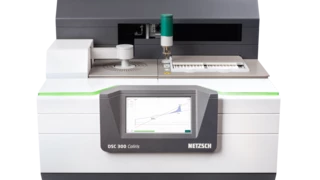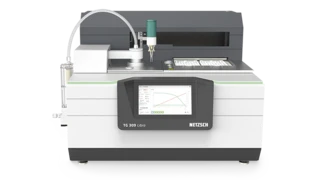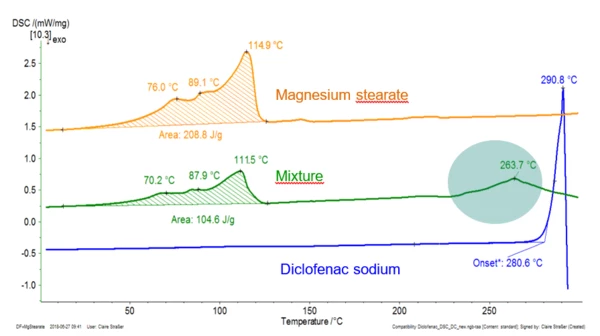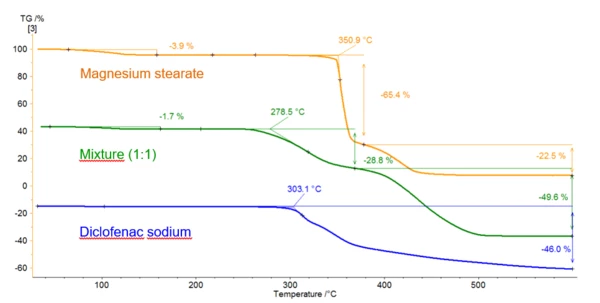Glossary
What is Drug-Excipient Compatibility?
Medicine is not a single active ingredient but a mixture of the active ingredient with different excipients. In a tablet for example, excipients are used to improve the appearance and taste of the final product, to prevent the tablet from sticking to the punching tool, or to help it dissolve as soon as it is wet, etc.
Many excipients are pharmacologically inert. However, physical and chemical interactions between the active ingredient and excipients can affect the stability, safety and therapeutic efficacy of the drug. In this case, the term drug-excipient incompatibility is used. On the contrary, if the excipient does not affect the active ingredient, both substances are compatible.

Do you have any questions?
Suitable products for your measurement
Methods
First information about compatibility of the active ingredient and excipient is obtained by means of thermal analysis methods:
- differential scanning calorimetry (DSC) and/or
- thermogravimetry (TGA).



